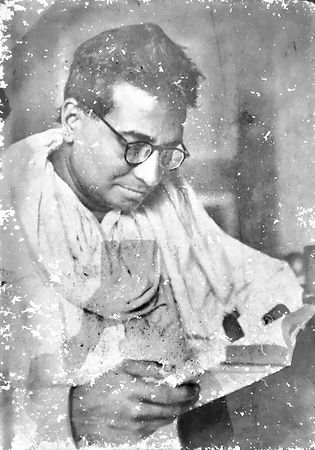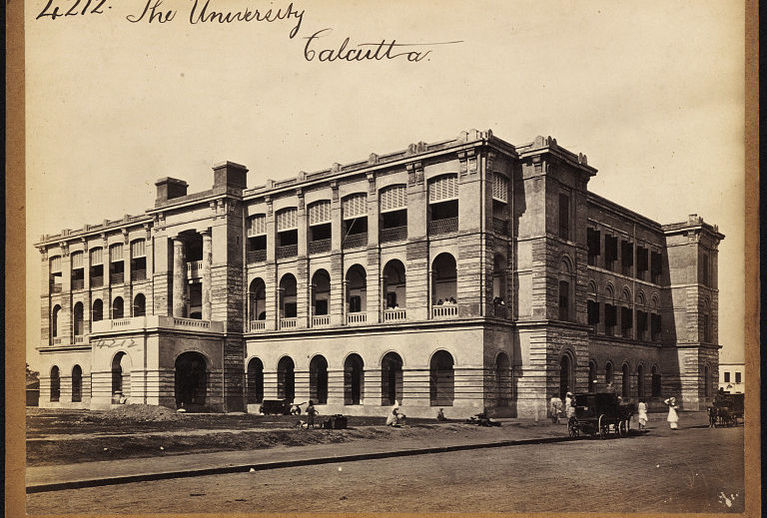OUR FOUNDERS

Dr K S Krishnan
Dr. Krishnan, full name Kariyamanikkam Srinivasan Krishnan, was born on 4th December 1898, in Vathirairuppu village, Srivillipputhur Taluk, Ramanathapuram District of Tamil Nadu. After receiving his early education in the Hindu school and Madurai American College, and later at the Christian College, Madras, he became a chemistry demonstrator in the latter.
In 1923, Dr. Krishnan’s passion for research led him to join forces with C.V. Raman, a Physics Researcher in Calcutta. As a part of Raman’s core team at the Institute, he contributed significantly to the discovery of the Raman effect, a discovery that was later awarded the Nobel Prize.
A Beacon of Educational
Excellence
In the times of the Bengal Presidency, the educational standards of Calcutta and Dacca University were renowned. As the former capital of India, Calcutta was a hub of activities, attracting individuals from across the country. This bustling city led industrial activities and was known as India’s rice hub.
Among the many who flocked to Calcutta, notable personalities like Dr. Sir C V Raman, the Nobel Laureate, and his able assistant Dr. K.S. Krishnan brought fame to the city.


Pivotal Roles and Accomplishments
Dr Krishnan accepted the position of assistant professor at Dhaka University in 1928, where he gained recognition for his work on Magne-Crystalic Action. As a Physics professor at Dacca University, he was honoured with the title of Fellow of the Royal Society. He later moved to Calcutta and continued his research at the Indian Institute for the Cultivation of Science.
Following his honorary tenure at the Indian Institute for the Cultivation of Science, he was appointed the Palit Professor and subsequently assumed the Dr. Mahendralal Sarkar Chair, a position specifically created for him. As the first occupant of this post, he motivated many young minds to pursue scientific research. He later served as the professor-in-charge of the Physics Department at Allahabad University.
Contributions to the Arts and Literature
A patron of Carnatic music, Dr. Krishnan shared a close relationship with Pushpavanam Iyer, whose music he greatly admired. As a man of letters, he was the founding president of Bharati Tamil Sangam in Calcutta. His proficiency in Tamil language and arts was evident when he recited a Kambar’s poem to start a program at one of the Sangam meetings.
International Acclaim and Contributions to the Scientific Community
Close to Pandit Jawaharlal Nehru, Dr. Krishnan played an instrumental role in advancing India’s scientific prowess. He was frequently invited to address international audiences at prestigious institutions like the Cavendish Laboratory and the Royal Institution, in addition to forums in France and Austria.
As a leading figure in the Indian Scientific Society’s meet in Madras, he was a committed scientist who also found time to address several gatherings on Vaishnava traditions. His humble and accessible nature was praised by Dr. Sarvapalli Radhakrishnan during a South Indian community meeting in Calcutta.

A Pillar of the Tamil Community in Kolkata
Dr Krishnan significantly contributed to the Tamil diaspora in Kolkata, wholeheartedly participating in Tamil literary, cultural, and religious activities. He also served as an influential mentor, inspiring and assisting many students in their scientific pursuits.
Dr Krishnan exemplified a seamless blend of scientific genius, literary aptitude, and cultural richness throughout his life, leaving a lasting legacy in both the scientific and Tamil communities. His life and work remain an inspiration to future generations, encouraging the pursuit of knowledge, the value of cultural identity, and the importance of contributing to society.
